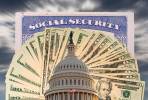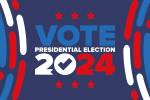Collateral damage
Randy Sowers and his wife, Karen, have operated a dairy farm in Frederick County, Md., for more than three decades. They often do business at farmer’s markets, where patrons pay in cash. During a trip to the bank to deposit their proceeds, a teller told Karen Sowers that it would reduce paperwork if she kept her transactions under $10,000.
She complied. But what Ms. Sowers didn’t realize is that this seemingly innocuous practice would eventually raise suspicions at the IRS, which in 2012 moved to seize the entire $62,936 in the couple’s bank account. Neither Randy nor Karen was ever charged with any crime.
Instead, the agency hijacked their savings under cover of the 1970 Bank Secrecy Act, which requires financial institutions to notify the government of all transactions exceeding $10,000. The statute also mandates that banks inform the authorities of activity that could be construed as an effort to evade the reporting threshold. Thus, those who make regular banking transactions in, say, the $9,000 range risk drawing the attention of the feds for “structuring” their deposits to hide illegal conduct.
Unfortunately, the Sowers case is not unusual. Over the past decade, the Institute for Justice reports, scores of innocent citizens — many of them small-business owners — have seen their savings confiscated by federal agents simply for their banking habits. It’s a regrettable reality that laws intended to nab drug kingpins, tax cheats and other criminals are often used against honest Americans.
All this comes to mind as President Obama rushes to implement new rules intended to combat financial crime in the wake of the release of the so-called Panama Papers. Among the proposed regulations, the Washington Post noted, is a requirement that banks and other financial outfits “find out and keep records on the real owners behind the companies that use their services.”
This is an effort to undermine the attractiveness of limited liability companies or LLCs — a business structure that offers members certain advantages including anonymity, flexibility and simplicity. States such as Nevada and Delaware have made it convenient and cheap to form such entities, which were at the center of the Panama documents and the controversy over financial secrecy.
It’s worth noting, however, that there is nothing inherently illegal about stashing money abroad or using the tax code to establish holding companies. By forcing banks to become federal surrogates and compile dossiers on their clients, the government risks making it more difficult for thousands of law-abiding citizens to engage in perfectly innocent activity.
The real story of the Panama Papers is the pervasiveness of political corruption across the globe as kleptocrats loot public treasuries for their own benefit. Meanwhile, concerns about the wealthy, anonymity and tax evasion, particularly in this country, would be best addressed by a substantive debate on tax policy and other related issues.
Instead, we’re treated to nice political optics and regulatory overkill that will likely do little to combat crime while burdening banks with costly mandates and increasing the odds that more innocent civilians become collateral damage in the war on money laundering and tax fraud.
Good intentions go only so far. Just ask Randy and Karen Sowers.























